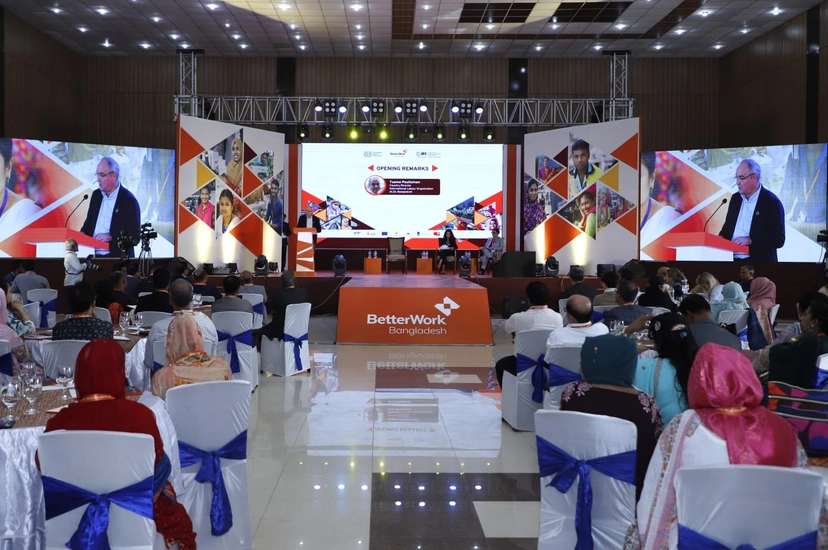
DHAKA, Dec 9, 2023 (BSS) - Country Director of ILO in Bangladesh Tuomo Poutiainen today said the progress related to gender parity issue in Bangladesh's readymade garment (RMG) is impressive.
"The progress that we see in Bangladesh's RMG sector is impressive. It demonstrates how gender equality is a moral imperative and an effective strategy to economic growth," he told an event in Chattogram, said an ILO press release.
The "Gender Equality and Returns: Advancing Women Leadership, Skills Development and Productivity in the Supply Chain" event brought together stakeholders from the RMG industry to showcase the Gender Equality and Returns (GEAR) initiative in promoting gender equality and continued advancement of women's leadership and skills in the RMG sector.
GEAR, a collaborative initiative by ILO and the IFC Better Work programme, has trained 800 female workers since 2016, of which 528 have been promoted to supervisory roles.
"The ILO looks forward to continuing this important work through the expansion of GEAR to foster a more inclusive workforce and drive tangible improvements in productivity and competitiveness," Poutiainen said.
While acknowledging GEAR's successes, speakers at the event emphasized the necessity for collaborative action from the government, factory owners, buyers, development partners, UN agencies, and civil society organizations (CSOs).
These collaborative efforts are essential to creating a more equitable garment industry, according to ILO.
Ambassador of the Republic of Korea to Bangladesh Park Young Sik said Korea is proud to support Bangladesh in these vital initiatives. "The strides made here in gender equality inspire many," he noted.
Leena Khan, Labor Attach,, U.S. Embassy Dhaka, Bangladesh, said, "As graduates of the GEAR program, you will contribute to better working conditions, ensuring worker voices are heard, and improving employment opportunities for women."
The US recognises the program's work with governments, employers, workers, trade unions, and global brands to improve worker rights in the garment industry and to make the sector more competitive, she said.
An Oxford University impact assessment revealed direct positive outcomes from GEAR, including a 5 percent increase in line efficiency, a 39 percent wage increase for female supervisors, and improved quality control, showcasing enhanced confidence and capabilities among trained workers.
Despite this, the sector still grapples with a mere 5 percent of supervisory roles held by women and an existing wage gap, highlighting the need for sustained efforts, said the release.